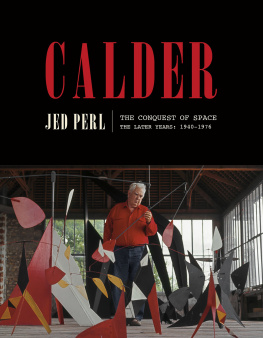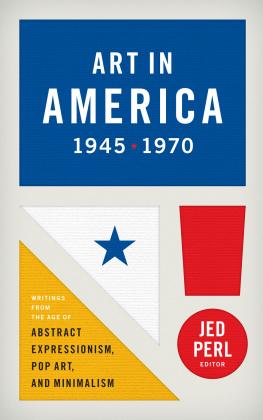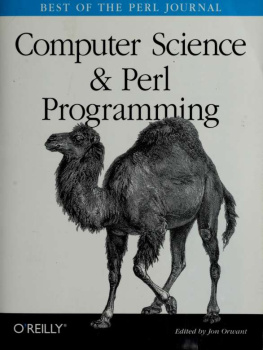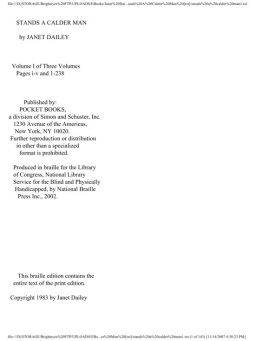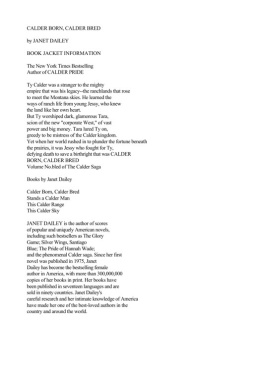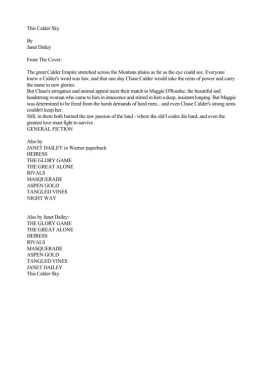Jed Perl - Calder: The Later Years: 1940-1976
Here you can read online Jed Perl - Calder: The Later Years: 1940-1976 full text of the book (entire story) in english for free. Download pdf and epub, get meaning, cover and reviews about this ebook. year: 2020, publisher: Knopf Doubleday Publishing Group, genre: Non-fiction. Description of the work, (preface) as well as reviews are available. Best literature library LitArk.com created for fans of good reading and offers a wide selection of genres:
Romance novel
Science fiction
Adventure
Detective
Science
History
Home and family
Prose
Art
Politics
Computer
Non-fiction
Religion
Business
Children
Humor
Choose a favorite category and find really read worthwhile books. Enjoy immersion in the world of imagination, feel the emotions of the characters or learn something new for yourself, make an fascinating discovery.
- Book:Calder: The Later Years: 1940-1976
- Author:
- Publisher:Knopf Doubleday Publishing Group
- Genre:
- Year:2020
- Rating:3 / 5
- Favourites:Add to favourites
- Your mark:
- 60
- 1
- 2
- 3
- 4
- 5
Calder: The Later Years: 1940-1976: summary, description and annotation
We offer to read an annotation, description, summary or preface (depends on what the author of the book "Calder: The Later Years: 1940-1976" wrote himself). If you haven't found the necessary information about the book — write in the comments, we will try to find it.
Calder: The Later Years: 1940-1976 — read online for free the complete book (whole text) full work
Below is the text of the book, divided by pages. System saving the place of the last page read, allows you to conveniently read the book "Calder: The Later Years: 1940-1976" online for free, without having to search again every time where you left off. Put a bookmark, and you can go to the page where you finished reading at any time.
Font size:
Interval:
Bookmark:
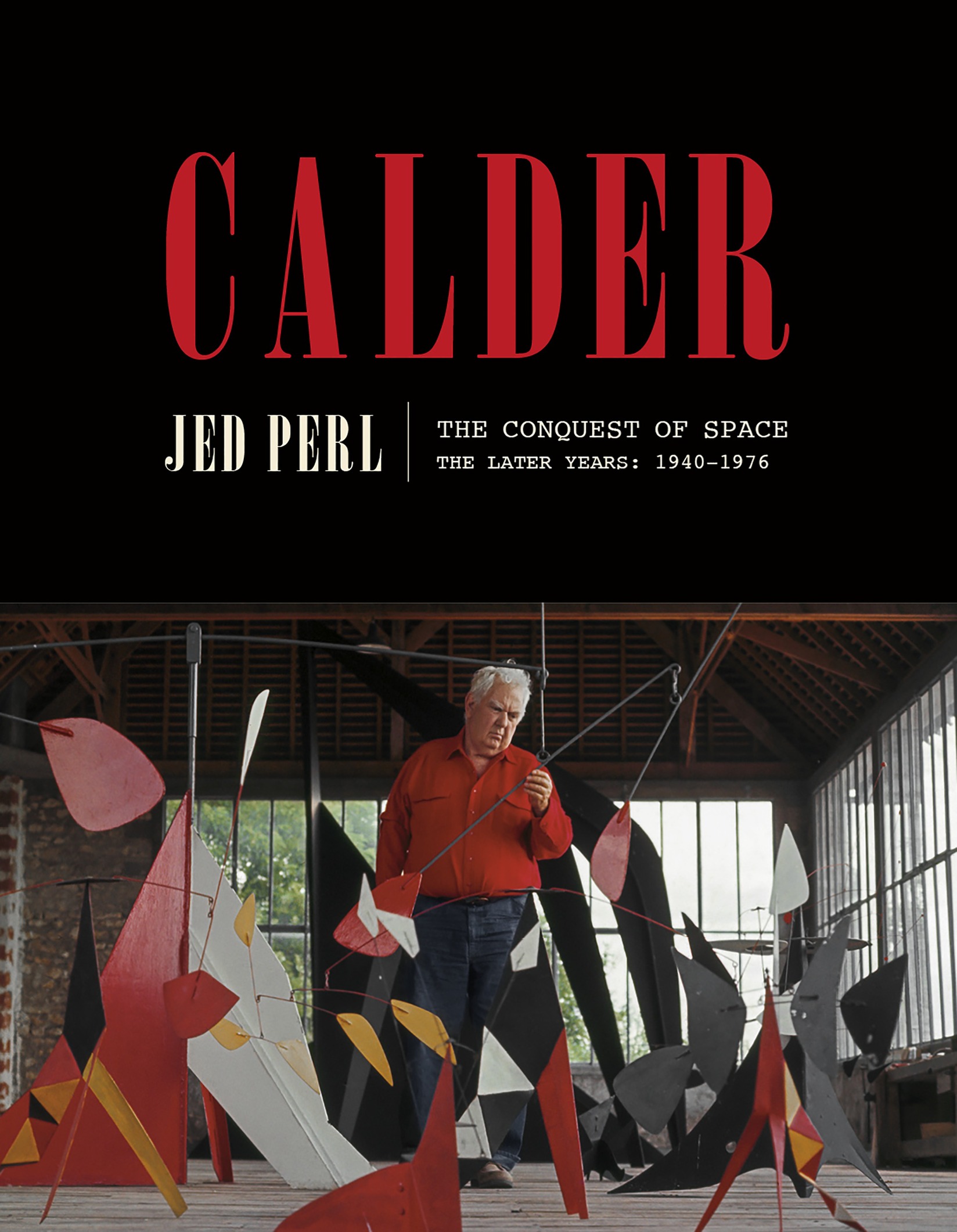
Paris Without End
Gallery Going
Eyewitness
New Art City
Antoines Alphabet
Magicians and Charlatans
Calder: The Conquest of Time
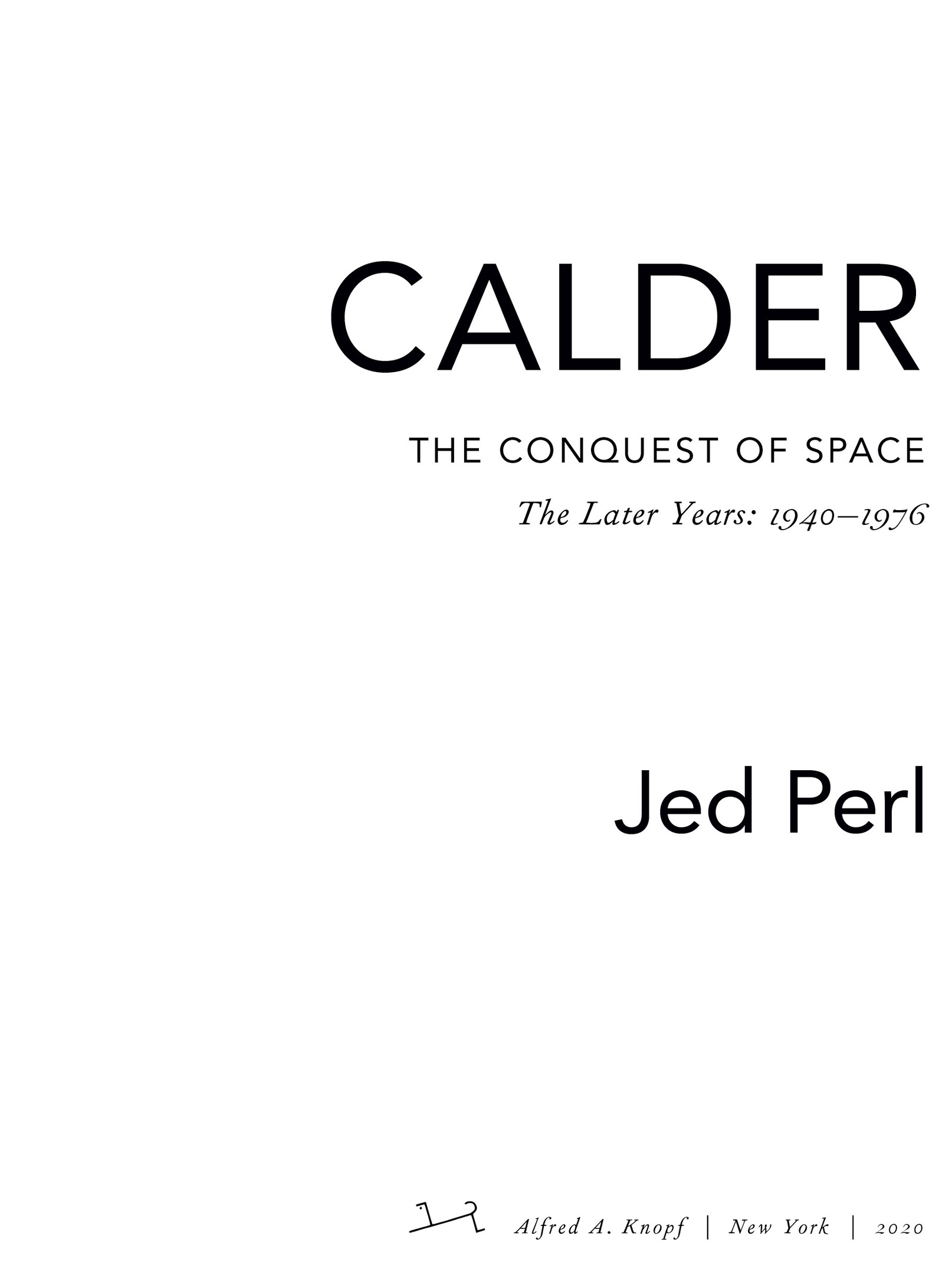
THIS IS A BORZOI BOOK
PUBLISHED BY ALFRED A. KNOPF
Copyright 2020 by Jed Perl
All rights reserved. Published in the United States by Alfred A. Knopf, a division of Penguin Random House LLC, New York, and distributed in Canada by Penguin Random House Canada Limited, Toronto.
www.aaknopf.com
Knopf, Borzoi Books, and the colophon are registered trademarks of Penguin Random House LLC.
Calder is a registered trademark of Calder Foundation, New York.
All works by and likenesses of Alexander Calder 2020 Calder Foundation, New York / Artists Rights Society (ARS), New York
Library of Congress Cataloging-in-Publication Data
Names: Perl, Jed, author.
Title: Calder : the conquest of space : the later years : 19401976 / Jed Perl.
Other titles: Calder (2020)
Description: First edition. | New York : Alfred A. Knopf, 2020. | This is a Borzoi book published by Alfred A. Knopf. | Includes bibliographical references.
Identifiers: LCCN 2019025621 (print) | LCCN 2019025622 (ebook) | ISBN 9780451494115 (hardcover) | ISBN 9780451494122 (ebook)
Subjects: LCSH : Calder, Alexander, 18981976. | SculptorsUnited StatesBiography.
Classification: LCC NB 237. C 28 P473 2020 (print) | LCC NB 237. C 28 (ebook) | DDC 730.92 [ B ]dc23
LC record available at https://lccn.loc.gov/2019025621
LC ebook record available at https://lccn.loc.gov/2019025622
Ebook ISBN9780451494122
Cover photograph: Calder in his studio, Sach, France, 1967 2020 Calder Foundation, NY/Artists Rights Society (ARS), NY. Photograph by Tony Vaccaro/Tony Vaccaro Studio.
Cover design by Peter Mendelsund
ep_prh_5.5.0_c0_r0
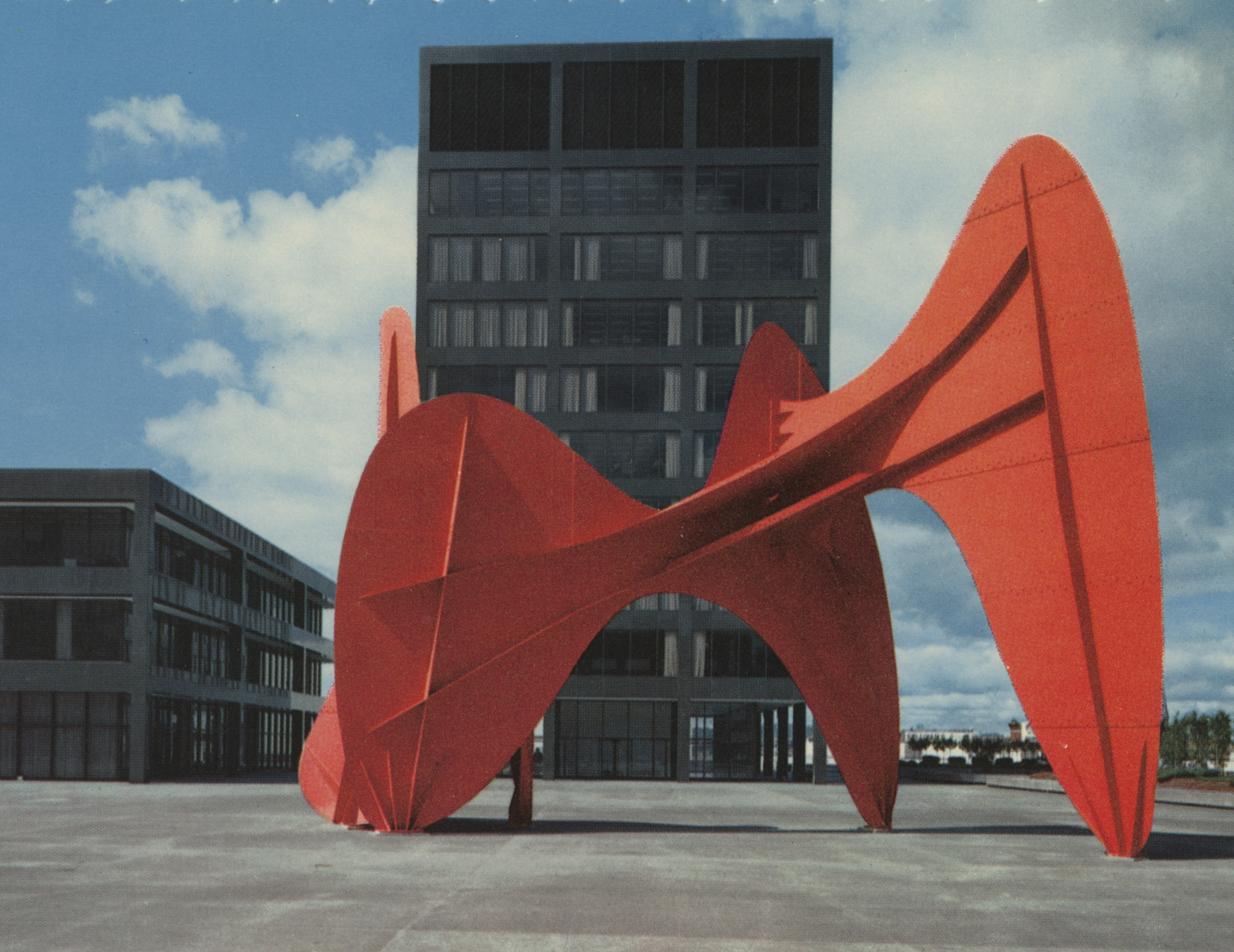
Calder. La Grande vitesse, 1969. Sheet metal, bolts, and paint, 43 x 55 x 25 ft.
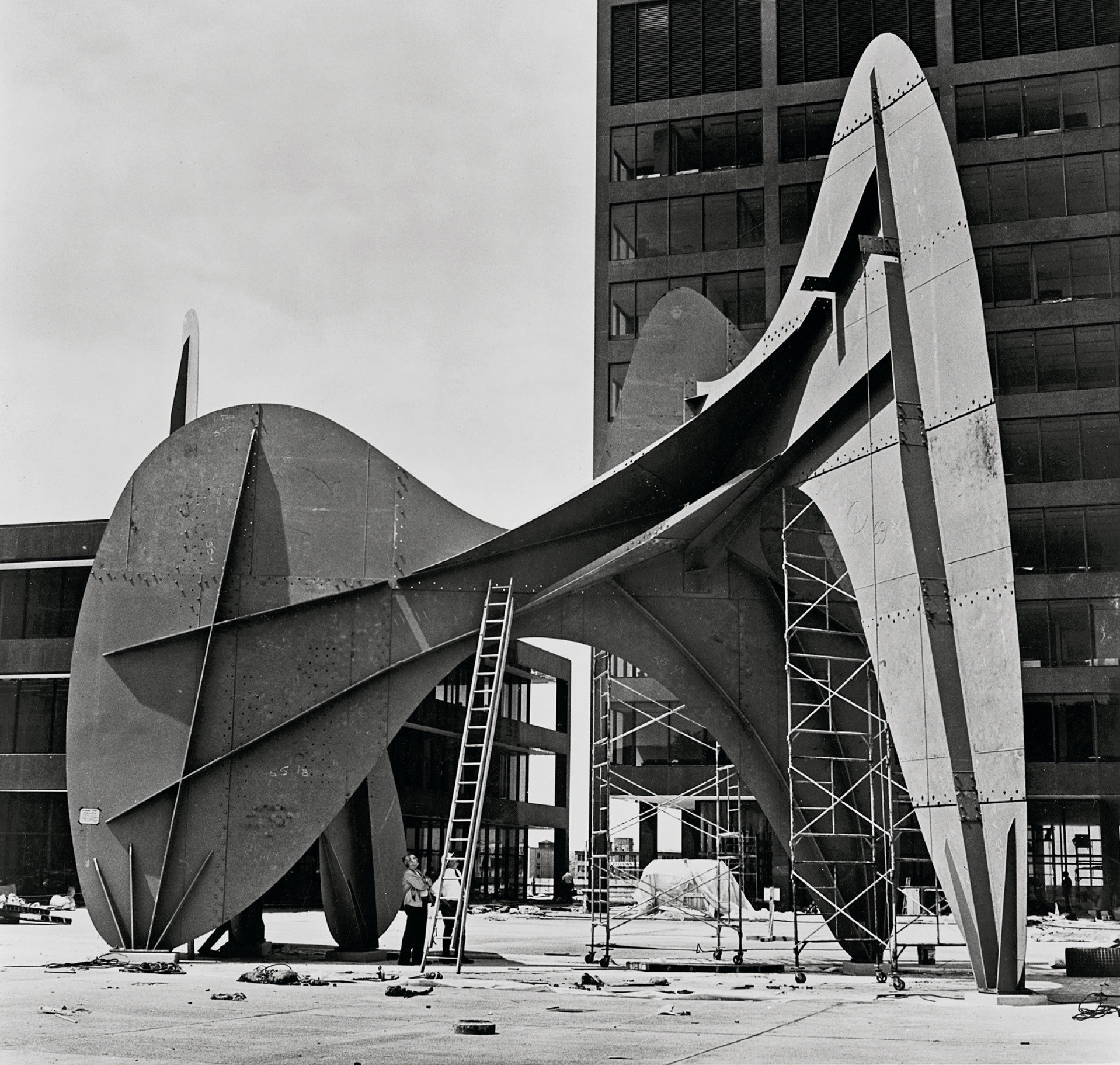
Installation of La Grande vitesse in Grand Rapids.
On June 14, 1969, a bright, cloudless Saturday, Alexander Calder and his wife, Louisa, were in Grand Rapids, Michigan, for the dedication of La Grande vitesse, the enormous steel sculpture he had made for the plaza in front of the recently completed City Hall. Calder, who was seventy that June, had been dreaming about a new kind of public monument since soon after he became an abstract artist early in the 1930s. But it was only in the 1960s that those dreams were becoming realities. The times were nothing if not dramatic, and the unprecedented arrival of a colossal abstract sculpture in the heart of a conservative midwestern city was just one more small twist in a decade full of surprises. The summer of 1967 had become the Summer of Love; the antiwar movement had brought down a president; a month after the dedication of La Grande vitesse a man walked on the moon. Although much too old to be part of the decades youthquake, the Calders embraced the idealistic spirit of the 1960s. The immense abstract monuments that Calder was beginning to create were as bold, as wild, as brilliant, as strange, as idiosyncratic, and as unprecedented as the times in which they were produced. A good friend, thinking of Calders indefatigable experimentation, wrote that some of his new work suggested an adventurous and carefree student-like march.
On the day of the dedication of La Grande vitesse, some two thousand people gathered in downtown Grand Rapids to welcome the artist and his art. The mood was celebratory, with children cavorting at the foot of the monument. The local symphony played a work for woodwind and percussion composed for the occasion by Aaron Copland. Copland and Calder knew each other a little and shared the steadiness of purpose that American modernists needed to forge an art with international ramifications. La Grande vitesse was a revolutionary geometry, and to move around it was to encounter a complex of occasionsoccasions that the men and women of Grand Rapids were only beginning to grasp. What Calder had created was an imaginative exaltation.
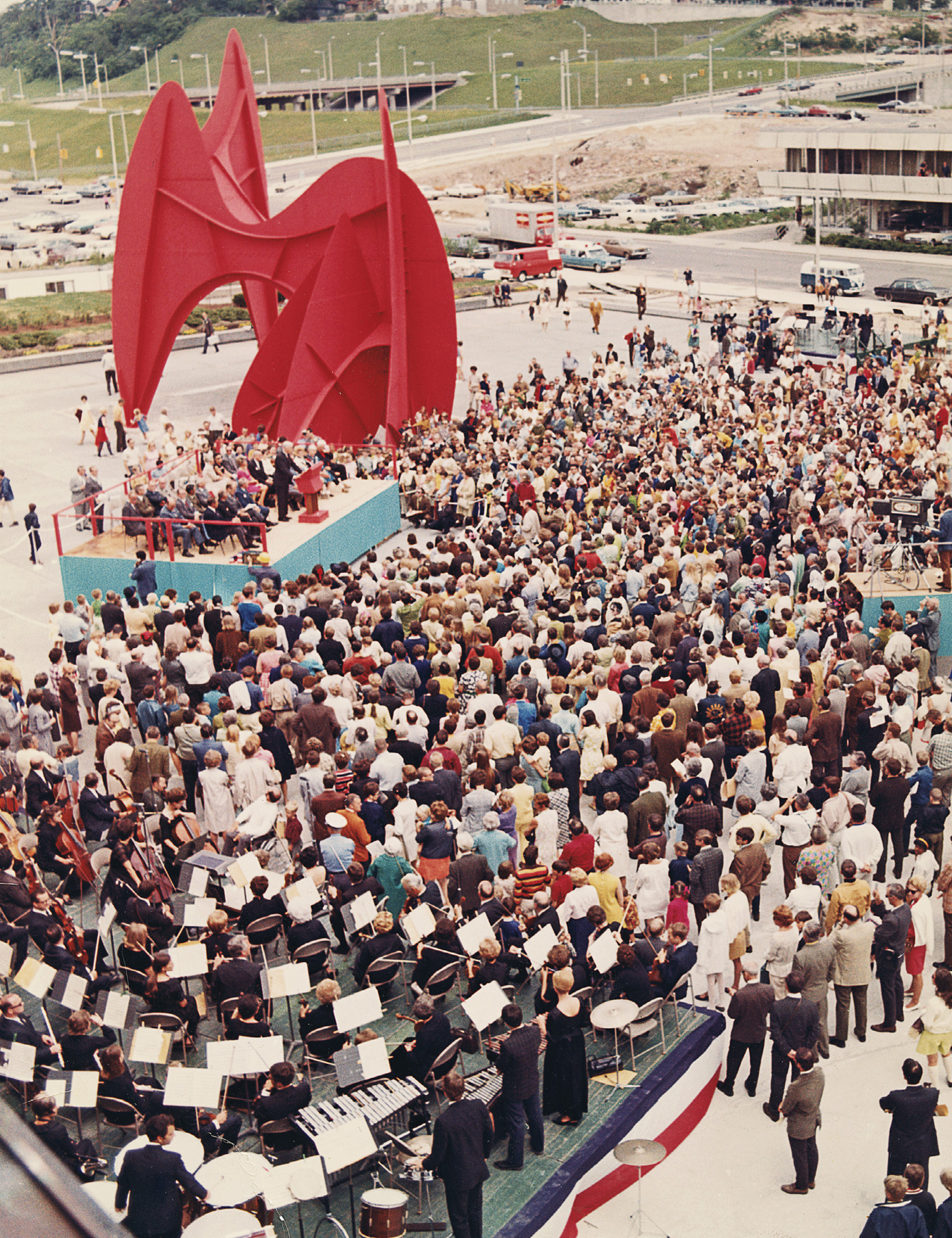
Dedication of La Grande vitesse, June 14, 1969.
Calder had a fine time in Grand Rapids, although he afterward confessed to an old friend, the architect Josep Llus Sert, that he had been a little reluctant about traveling to Michigan for the dedication.
What he may not have known was that sixty years before La Grande vitesse was inaugurated, Frank Lloyd Wright had designed a house for Meyer May, the president of a Grand Rapids clothing emporium. Wrights Meyer May House was a work of stirring originality, with a mass, a dynamism, and a visual drama that bear comparison with some of Calders monumental works. Among those in attendance at the dedication of La Grande vitesse was Robert Blaich, the director of design at Herman Miller; he had been a member of the committee that approached Calder about creating a work for the city. As part of the celebrations Calder was given an Eames lounge chair.
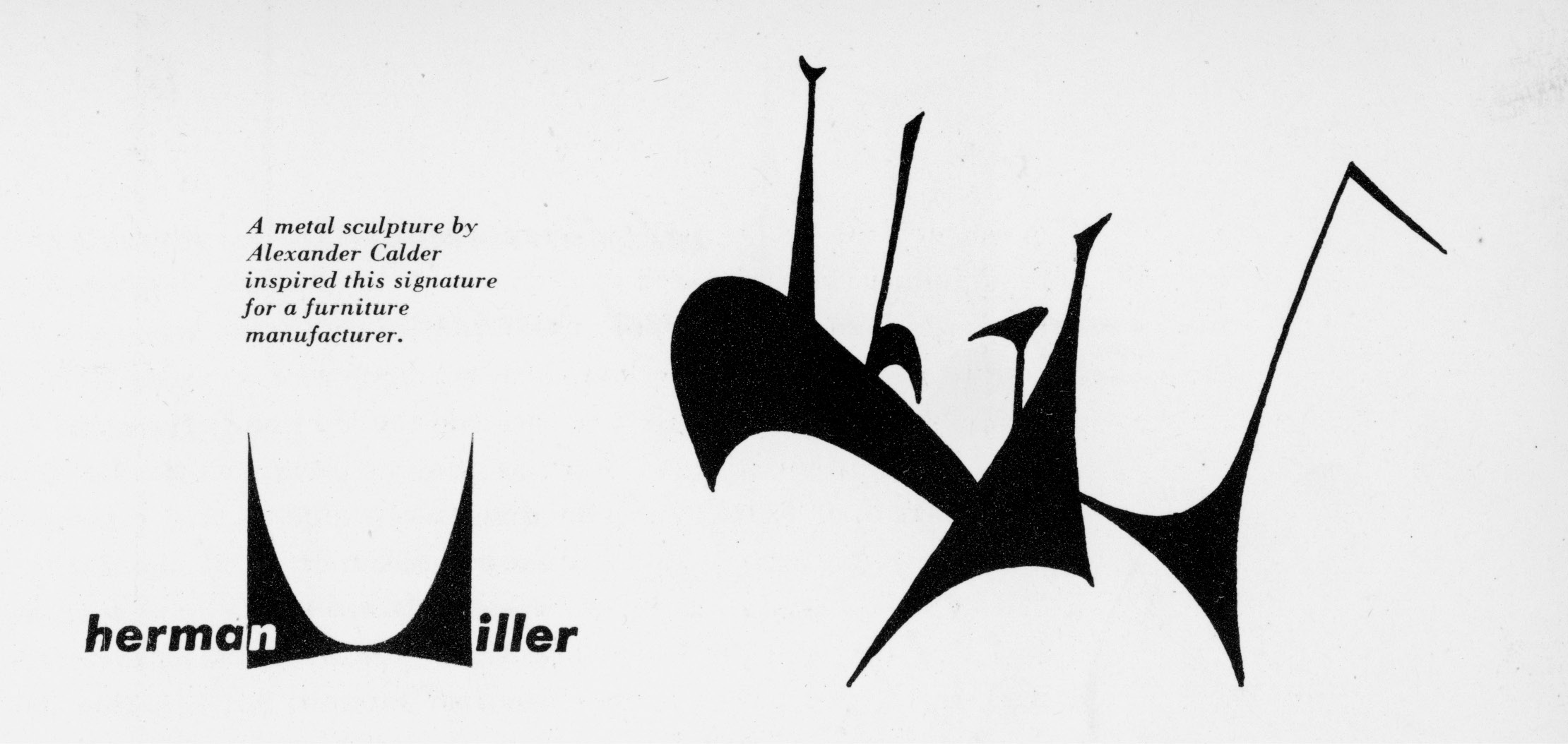
Calders Spiny (maquette, 1939) and the logo for the Herman Miller company, as reproduced in Carl Dairs Design with Type, 1952.
The story of how Calder came to make La Grande vitesse is a story about the growing acceptance of avant-garde ideas and ideals in the United States in the second half of the twentieth century. This was, among many other things, a generational process, which was vividly on display early on the day of the inauguration, when Sandy, as everybody called him, with his aging, open face and wild aureole of white hair, was seated at a press conference next to an elegant, beautifully coiffed woman by the name of Nancy Mulnix, who was less than half his age. She was married to LeVant Mulnix III, the scion of an old Grand Rapids family; everybody called him Lee. Nancy, a modern-day ambassador without portfolio, was a housewife with three young children who managed to turn a long-standing admiration for Calders work into a campaign that ultimately transformed Grand Rapids. She was, as Sandy had realized as he got to know her in the couple of years that La Grande vitesse was in the planning stages, a woman of intelligence, wit, and spirit. It was to Nancy that he turned again and again during the creation of La Grande vitesse. There were bound to be complications, since the work was fabricated in France, where Sandy and his wife were living much of the time, before being shipped to Michigan and assembled in Grand Rapids. How late is Muskegon port open? he wrote to Nancy in September 1968.
Font size:
Interval:
Bookmark:
Similar books «Calder: The Later Years: 1940-1976»
Look at similar books to Calder: The Later Years: 1940-1976. We have selected literature similar in name and meaning in the hope of providing readers with more options to find new, interesting, not yet read works.
Discussion, reviews of the book Calder: The Later Years: 1940-1976 and just readers' own opinions. Leave your comments, write what you think about the work, its meaning or the main characters. Specify what exactly you liked and what you didn't like, and why you think so.

